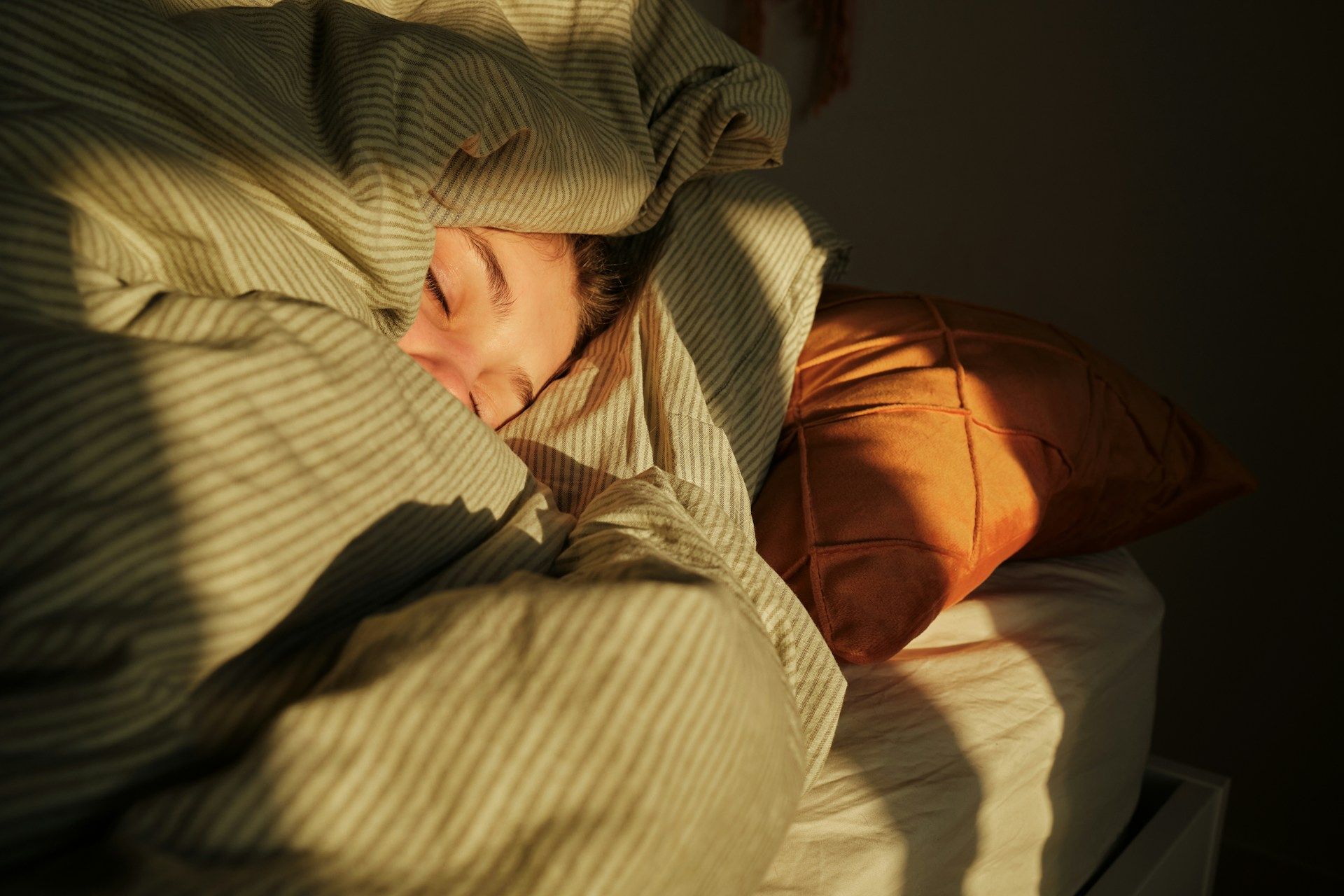Easy Steps for Better Sleep Every Night

Getting a good night's sleep is essential for overall health and well-being. Sleep impacts everything from mood and energy levels to mental clarity and physical health. However, many people struggle to get the restful sleep they need. Understanding how to improve your sleep quality can make a big difference.
One of the first steps to better sleep is creating a sleep-friendly environment. The conditions of your bedroom—such as lighting, noise level, and temperature—play a crucial role in how well you sleep. With that in mind, you can see that making even just a few simple adjustments can transform your bedroom into a sleep haven.
So, we’ll guide you through easy steps to improve your sleep every night, helping you wake up feeling energized and ready to take on the day.
Wake Up Refreshed: Easy Steps to Improve Your Sleep
1. Create a Sleep-Friendly Environment
Creating a sleep-friendly environment is crucial for getting good quality sleep. Your bedroom should be a sanctuary for rest and relaxation. Here are some simple steps to make your space more conducive to sleep.
First, control the lighting. Darkness signals to your body that it’s time to sleep. Use blackout curtains to keep out any outside light, and consider wearing a sleep mask. Keep electronic devices, which emit blue light that can interfere with your sleep, out of the bedroom or turn them off an hour before bedtime.
Next, manage noise levels. Loud or sudden sounds can wake you up or disrupt your sleep cycles. Use earplugs or a white noise machine to drown out any disruptive sounds. Soft, soothing music or nature sounds can also help create a calming atmosphere.
Temperature is another important factor. Your bedroom should be cool but comfortable. The ideal temperature for sleep is between 60-67 degrees Fahrenheit. Use breathable bedding and wear comfortable sleep clothes to help regulate your body temperature.
Eliminate clutter from your bedroom. A tidy room can help reduce stress and make it easier to relax. Keep your bedroom clean and free of unnecessary items to create a peaceful space.
2. Establish a Consistent Sleep Schedule
Maintaining a consistent sleep schedule reinforces your body’s sleep-wake cycle, known as the circadian rhythm. Going to bed and waking up at the same time every day helps improve sleep quality and makes it easier to wake up refreshed.
Set a bedtime that allows for 7-9 hours of sleep. Stick to this schedule even on weekends. Consistency makes it easier for your body to know when it’s time to sleep and when it’s time to wake up.
Create a bedtime routine to signal to your body that it’s time to wind down. This can include activities like reading a book, taking a warm bath, or listening to calming music. Doing the same activities each night before bed can help train your body to recognize when it's time to sleep.
Limit naps during the day. While napping can be tempting, especially if you’re feeling tired, long or irregular naps can confuse your body’s internal clock. If you need to nap, try to keep it short, around 20-30 minutes, and avoid napping late in the afternoon.
These steps will help you establish a regular sleep pattern, making it easier to fall asleep and wake up feeling energized and ready for the day.
3. Incorporate Relaxation Techniques
Relaxation techniques can help calm your mind and body, making it easier to fall asleep. Integrating these practices into your nightly routine can improve the quality of your sleep.
Start with deep breathing exercises. Slow, deep breaths help reduce stress and relax your muscles. Try inhaling deeply through your nose for a count of four, holding for a count of four, and exhaling through your mouth for a count of four. Repeat this cycle a few times to help your body unwind.
Meditation is another powerful tool for relaxation. Spend a few minutes each night focusing on your breath or repeating a calming word or phrase. Meditation can quiet your thoughts and prepare your mind for restful sleep.
Gentle stretching can also be beneficial. Stretching helps relieve muscle tension and improve circulation. Simple yoga poses or a few minutes of stretching before bed can help relax your body.
Consider trying aromatherapy. Scents like lavender, chamomile, and vanilla are known to promote relaxation. Use a diffuser with essential oils or apply a few drops to your pillow to create a calming environment.
4. Monitor Diet and Exercise for Better Sleep
Your diet and exercise habits significantly impact your sleep quality. By making mindful choices, you can improve your chances of getting a good night's rest.
First, pay attention to your diet. Avoid heavy meals, caffeine, and alcohol close to bedtime. These can disrupt your sleep. Instead, opt for a light snack if you're hungry. Foods like bananas, almonds, and warm milk can promote sleep.
Stay hydrated, but try to limit liquids right before bed to avoid frequent trips to the bathroom. Dehydration can also affect your sleep quality, causing you to wake up feeling tired and groggy.
Regular exercise is crucial for good sleep. Physical activity helps you fall asleep faster and enjoy deeper sleep. Aim for at least 30 minutes of moderate exercise most days of the week. However, avoid vigorous exercise close to bedtime, as it can be stimulating and make it harder to fall asleep.
Listen to your body. Consider lighter activities like walking or stretching if you’re too tired to exercise. The goal is to stay active and maintain a healthy lifestyle that supports good sleep.
Enjoy Deeper, More Restful Sleep with These Easy Changes
Better sleep is within reach by making a few simple changes to your daily habits. Creating a sleep-friendly environment, establishing a consistent sleep schedule, incorporating relaxation techniques, and monitoring your diet and exercise can all contribute to improved sleep quality. These steps not only help you fall asleep easier but also ensure you wake up feeling refreshed and ready to take on the day.
If you’re struggling with sleep and need personalized support, Helix HRT offers expert advice and customized treatment plans to help you achieve better sleep and overall well-being. Take the first step towards a healthier, more restful life. Contact our
hormone replacement clinic in Las Vegas today for a consultation and start your journey to better sleep!
Ensure Consistency - Refill Your Hormone Replacement Medication Today!

Contact us today and get personalized treatment without ever having to leave your home.
Navigation
Contact Info
Phone: (725) 444-5575
Email: info@helixhrt.com
Address: 2625 N Green Valley Parkway, Henderson, NV 89014
All Rights Reserved | Helix HRT
Website designed by: Designer 1 Media









